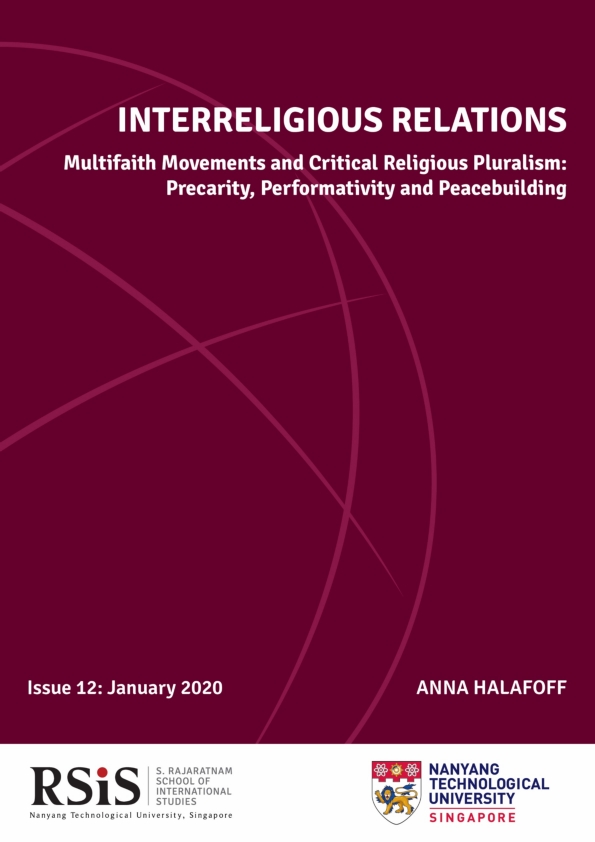14 January 2020
- RSIS
- Publication
- RSIS Publications
- Interreligious Relations (IRR) Issue 12 – Multifaith Movements and Critical Religious Pluralism: Precarity, Performativity and Peacebuilding by Anna Halafoff
Abstract:
We are currently witnessing an intensifying clash between cosmopolitans and anti-cosmopolitans internationally, in which religions are often playing complex and ambivalent roles in promoting or undermining respect for rights and diversity. This paper draws on my and my colleagues research on the global multifaith movement, and the Worldviews of Australia’s Generation Z study to make a case for what I call critical religious pluralism. Building on Ulrich Beck’s cosmopolitan theory, and Judith Butler’s critical theory and thinking on precarity and performativity, I argue that there are lessons from the global multifaith movement that can perhaps be useful to contemporary social movements and networks addressing today’s most pressing issues. I also contend that a more critical interrogation of religion’s capacity to cause harm and violence, which is often lacking in multifaith movements and contemporary research on religions, is needed to stem the anti-cosmopolitan turn and to inform policies and curricula pertaining to religion.
Abstract:
We are currently witnessing an intensifying clash between cosmopolitans and anti-cosmopolitans internationally, in which religions are often playing complex and ambivalent roles in promoting or undermining respect for rights and diversity. This paper draws on my and my colleagues research on the global multifaith movement, and the Worldviews of Australia’s Generation Z study to make a case for what I call critical religious pluralism. Building on Ulrich Beck’s cosmopolitan theory, and Judith Butler’s critical theory and thinking on precarity and performativity, I argue that there are lessons from the global multifaith movement that can perhaps be useful to contemporary social movements and networks addressing today’s most pressing issues. I also contend that a more critical interrogation of religion’s capacity to cause harm and violence, which is often lacking in multifaith movements and contemporary research on religions, is needed to stem the anti-cosmopolitan turn and to inform policies and curricula pertaining to religion.





